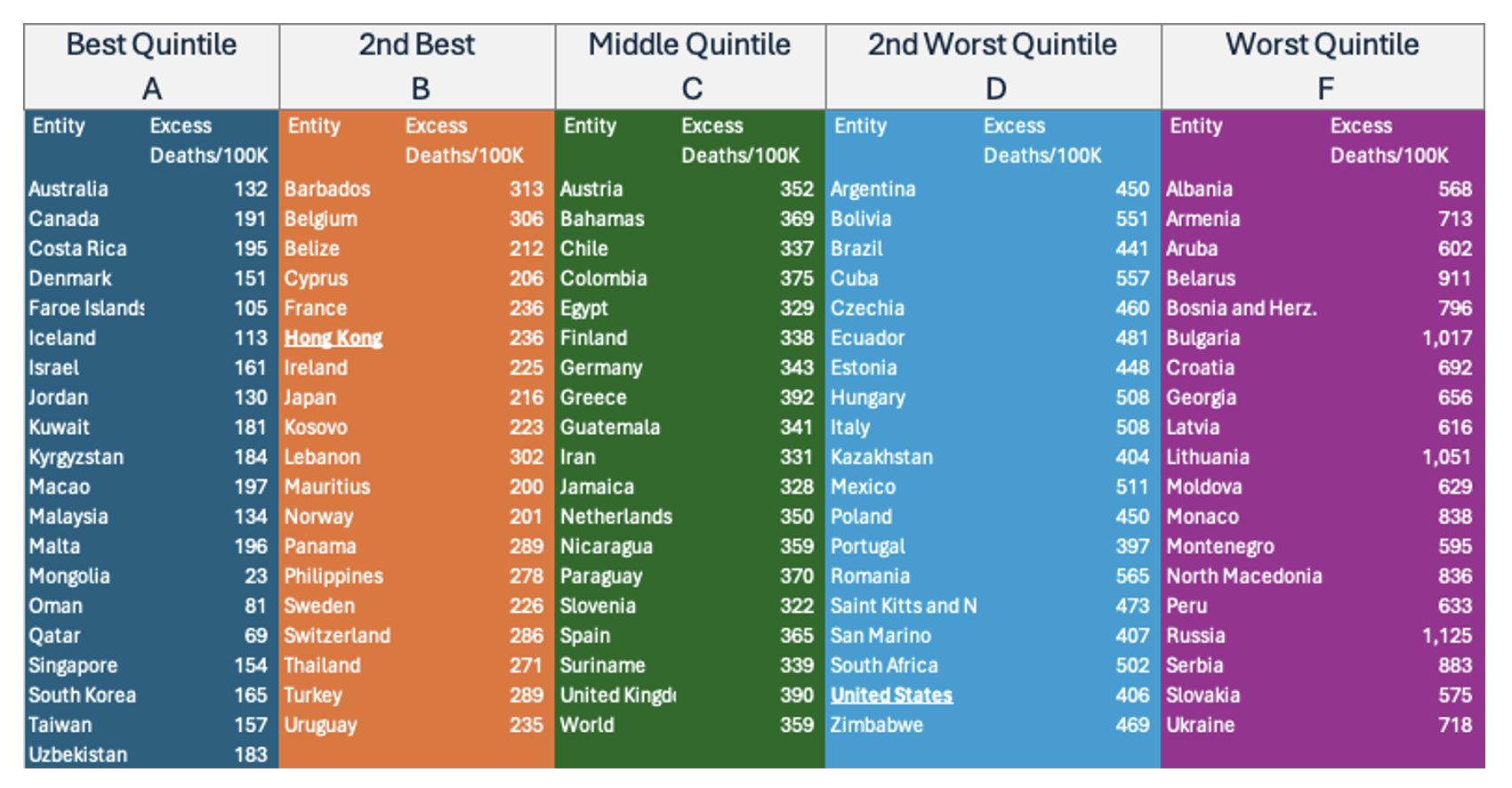Reflection Deficit Disorder: A Post-Pandemic Pandemic
“Reflection Deficit Disorder” (RDD) is not a disease, but it might be the most important pandemic we have ever faced. The COVID Crisis Group authors think this rampant condition explains why communities and governments are failing to take on needed public health reforms 1. Reflection requires examining the root causes of recent events to learn from mistakes to make systems and structures stronger and better. Reflection is the opposite of playing a quick round of the blame game. Blaming assumes the system is sound and suffered the bad luck of being operated by a few flawed humans. Reflection asks how to put in fail safes and checks that will help the system succeed despite flawed humans.
The secret to success in communities that had the fewest cumulative COVID deaths over the last 3 years was reflection prior to COVID. Exemplar countries like Qatar and South Korea had both a recent major epidemic and an organized effort to reflect and reform. After the Middle East Respiratory Syndrome (MERS) outbreak of 2015, both South Korea and Qatar implemented a national public health strategy. Their public health leaders chose to reflect—it was not automatic. But, by choosing to reflect on MERS, these unsung heroes made reforms from 2015 to 2019 that enabled low death counts and rapid vaccine uptake. Reflecting on a recent pandemic is the best way to save lives in the next one.
Reflection is not popular and national politicians are mostly disinterested. Rushing back to normal is the comfort zone. Failing to reflect is all too human. Battle-scarred and fatigued as well as leery of a descent into a witch hunt, most people prefer to just get on with life. Reflecting on COVID would bring attention to what powerful people did, what the media did, and how money was spent. Distractions abound.
The inconvenient truth is that more trouble is certain to come. This moment is the most critical time to reflect. Memory is fresh and there is still a remnant of political will to make things better.
There are ways to overcome RDD. We all need to make reflection a habit in our own lives by setting aside time. We can ask: What have I learned from this situation? What assumptions must I change? How would I do things differently? We can seek feedback from our mentors, colleagues and friends. We can create environments in our homes and workplaces where people feel comfortable sharing their ideas without fear of judgement. We can make sure everyone has a chance to participate in group discussions of our shared work and entwined lives. From this foundation we can begin to create communities that undertake more reflection and thereby build a more coherent system of preparedness for the certain challenges of the future.
Reflection Deficit Disorder’s basic humanism is rooted in short-sighted selfishness. It is an indulgence that nobody and no society can afford. But because humanity is inherently social, the shared work of making our communities more cooperative and better protected is far more rewarding than playing ostrich. Homo sapiens is hard-wired to create shared identity around protecting ourselves from group threats. We are wired to take care of each other. We are wired to reflect.
Overcoming RDD is the best gift we can give our future selves and our children. They will not and should not forgive us if we spend this decade ignoring the now obvious weaknesses in the capability of our public health systems.
David Bishai is Clinical Professor and Director of the Hong Kong University School of Public Health
______
1. COVID Crisis Group. Lessons From The COVID War: Public Affairs Books; 2023.



Comments
Post a Comment